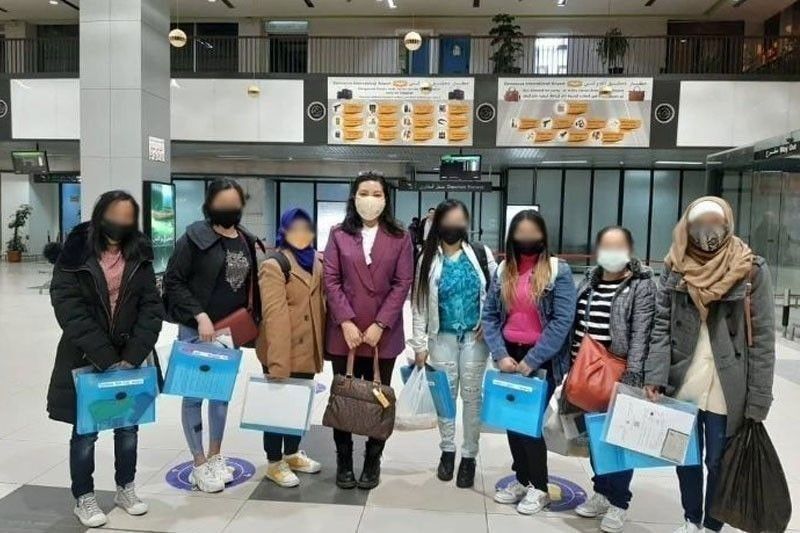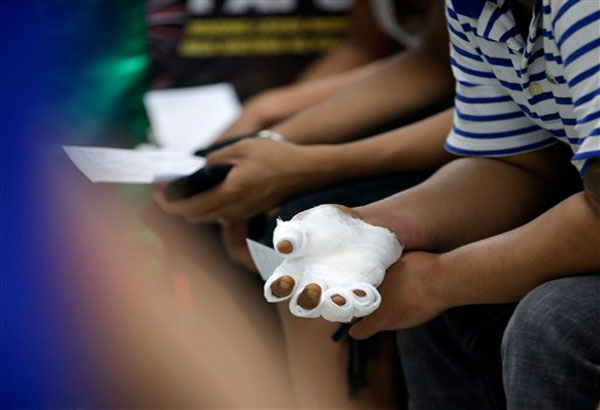Philippines keeps top tier in fight vs human trafficking

MANILA, Philippines — The Philippines fully meets the minimum standards for the elimination of trafficking, but the country did not report vigorously investigating labor trafficking crimes and holding officials accountable, according to the US Department of State’s latest annual report on human trafficking.
“The government continued to demonstrate serious and sustained efforts during the reporting period, considering the impact of the COVID-19 pandemic on its anti-trafficking capacity; therefore the Philippines remained on Tier 1,” the State Department said in the 2022 Trafficking in Persons Report.
These efforts included identifying more victims than in 2020, drafting standard operating procedures on the identification and monitoring of trafficking-related corruption cases, sentencing nearly all traffickers to significant prison terms and creating an executive-level Department of Migrant Workers.
For the seventh straight year, the country maintained the top classification or Tier 1 ranking in the annual report released by the State Department.
According to the State Department, countries and territories under Tier 1 have governments that fully meet the minimum standards of the US Trafficking Victims Protection Act of 2000 in eliminating human trafficking.
The report mentioned victim-witness coordinators supported more victims participating in the criminal justice process than in the previous reporting period, and the government increased funding to the interagency anti-trafficking council.
Although the government meets the minimum standards, the report said it did not vigorously investigate labor trafficking crimes that occurred in the Philippines or take adequate steps to investigate and arrest individuals suspected of purchasing commercial sex from trafficking victims, nor did it provide training for labor inspectors on indicators of human trafficking.
“The government prosecuted and convicted fewer traffickers, and it did not report holding accountable officials allegedly complicit in human trafficking crimes,” it said.
The government did not report the total number of anti-trafficking operations and investigations of illegal recruitment as it did in prior years. However, it reported 168 law enforcement-led anti-trafficking investigations, compared with 248 anti-trafficking operations and 233 investigations of illegal recruitment in the previous reporting period.
Courts sentenced nearly all traffickers convicted under the anti-trafficking act to significant prison terms, ranging from four years to life imprisonment, and fines ranging from P500,000 to P10 million ($9,800 to $195,960).
As reported over the past five years, human traffickers exploit domestic and foreign victims in the Philippines, and traffickers exploit victims from the Philippines abroad. Traffickers exploit women and children from rural communities, conflict- and disaster-affected areas and impoverished urban centers in sex trafficking, forced domestic work, forced begging and other forms of forced labor in tourist destinations and urban areas around the country, while traffickers exploit men in forced labor in the agricultural, construction, fishing and maritime industries, sometimes through debt-based coercion.
NGOs and government officials continue to report cases in which family members sold children to employers for domestic labor or sexual exploitation, and there are reportedly hundreds of thousands of children involved in selling and begging on the streets at risk to trafficking.
The State Department recommended the Philippine government to increase its efforts in arresting and prosecuting labor traffickers, amplify its support for human trafficking victims and create a central database for information on illegal recruiters and human trafficking cases.
- Latest
- Trending

































